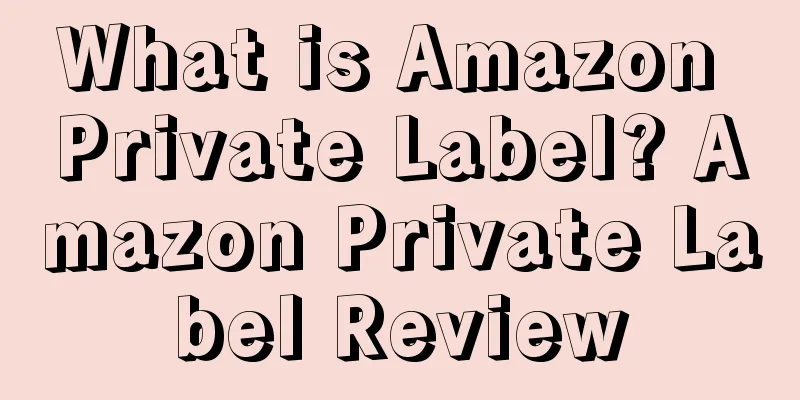Amazon plans to withdraw from the self-operated market? Sellers: Something is not right...

|
Recently, The Wall Street Journal published a news report: Amazon has been cutting back on its own-brand business amid weak sales . Executives have also discussed exiting the business entirely in response to market regulatory pressure. According to the literal meaning, Does this mean that Amazon may no longer operate its own brand business? As of 2020, Amazon's own business already covers 45 brands and 243,000 products. This year’s Prime Day Amazon private-label products were in several key categories. They accounted for 64% of purchases of smart home devices, 43% of consumer electronics, 38% of household essentials, 38% of grocery stores, and 30% of apparel and shoes. This shows how fierce the competition is, and sellers are competing with each other. If Amazon were to withdraw from self-operated business, That is great news for sellers. Amazon's own brands will compete with other sellers on the platform. It is often complained by sellers. They said that they used the advantages of their own brands to oppress other sellers. So other sellers have been unhappy with it for a long time. An insider revealed that In the past six months, Amazon’s leadership directed its private-label team to drastically cut product listings. One executive even said he would reduce the variety of its own brands in the United States by more than half. In fact, Amazon began to expand its own-brand business as early as 2009. Now it covers everything from vitamins and coffee to clothing and furniture. It owns brands such as Amazon Basics, Goodthreads, and Solimo. However, Amazon stated that Its own brands account for only about 1% of its retail sales. As Amazon's self-operated business continues to expand, The competition between sellers and platforms is becoming increasingly fierce. This has led to more and more sellers being angry. And called for antitrust supervision. Just in the past 2022 Prime Day, Among the top five selling products, Three are Amazon’s own brands. The top five products in 2021 are all Amazon’s own products. No matter which category you are an Amazon seller in, As long as there is Amazon self-operated in your category, Then you can basically only fight for the third, fourth, or fifth place. Amazon eats meat, You can only drink soup. Sometimes I don't even leave you any soup. He even kicked over your bowl. I can't help but think of the recent popular "Kaobian Incident" Already have a golden rice bowl, And they also want to take away other people's iron rice bowls. It's really easy to arouse public anger. Okay, let’s not go too far. Seeing this, I believe that what sellers are most concerned about is whether this news is true? After the above article was published online, Amazon said in a statement: "We have never seriously considered closing our private label business, and we will continue to invest in this area, just as many of our retail competitors have done for decades and will continue to do so now." The literal meaning is also very clear. This means that Amazon cannot possibly give up its own business (it has never considered it) . The most that can be done is to make certain "concessions" under regulatory pressure. So the sellers may be disappointed. But think about it carefully, How could Amazon be content to be just a platform provider? My brother-in-law has always been very supportive of Amazon's private label business. When he was in office, he set a goal for the self-operated team: to achieve 10% of Amazon's sales by 2022 . So Amazon is not going to give up its own business. Instead, some weak and sluggish products were cut off. Focus on making some self-operated products with advantages. The Wall Street Journal's report is certainly not groundless. Regulatory pressure and weak sales were the two main factors behind this decision. Some industry insiders also said that Amazon did this for the following three reasons: 1. Some self-operated products have poor sales and cannot generate profits 2. Reduce scale and reduce antitrust supervision pressure 3. Cut off some weak products and set aside funds to focus on developing strong products This has attracted the approval of many sellers. On the surface, Perhaps the reduction in Amazon's own sales is good for Amazon sellers. Sellers in certain categories can expect less competition. But most people still think that the disadvantages outweigh the advantages. Amazon will not give up the competition. On the contrary, it will strengthen the development of more profitable self-operated businesses. The competition between platforms and sellers will become increasingly fierce. The contradictions may become more prominent. In the post-epidemic era, it is difficult for everyone to sell. After Member Day, it is also an important opportunity for everyone to select products and plan for the second half of the year. However, we have compiled a collection of practical information on product selection, and used examples to give you a comprehensive analysis of the key points of product selection. |
<<: Big changes in North American consumer trends! Amazon Prime Day reveals new trends
>>: Will air freight prices come down? China's first professional cargo airport is put into use!
Recommend
What is FBW? FBW Review
FBW (Fulfillment By Wish ) means that merchants on...
What is ClickFunnels? ClickFunnels Review
ClickFunnels is a tool for creating landing pages....
What is Jiuyi ERP? Jiuyi ERP Review
Beijing Jiuyi Network Technology Co., Ltd. is head...
Cross-border e-commerce product selection: Top 10 best-selling products in summer 2019
The heat wave of the sun is coming, and people ar...
What is Socialbakers? Socialbakers Review
Socialbakers is a website that provides data analy...
What is Data Pulse? Data Pulse Evaluation
Data Pulse is an Amazon data selection and operati...
Sellers fall into money laundering scam! Sellers who need to clear out their stock after Black Friday, please take note! (Heavy benefits included)
Get free benefits at the end of the article Durin...
Children's clothing consumption survey: 80% of parents discover new products through platforms such as TikTok
It is learned that on October 10, according to for...
Entering the Gen Z market! Walmart announced a partnership with DTC brand Bubble
<span data-shimo-docs="[[20,"获悉,为了将业务范围扩大至...
Massive keyword "traffic pool" hit strategy, grasp the Prime Day traffic wealth
In order to grasp the Prime Day traffic and better...
Online shopping orders in the United States and Canada increased by 52% due to the epidemic
On April 3, due to the impact of the epidemic, con...
Teach you step by step how to regain editing rights after being copied across sites and your brand has been modified on Amazon
Recently, I have encountered many sellers reporti...
This logistics channel is no longer available? Where should Amazon sellers go...
The United States begins the process of withdrawi...
Prime Autumn Sale: Sales Boom on the First Day! Sellers: It’s all due to the volume
On October 8, Amazon Prime members' autumn pro...









